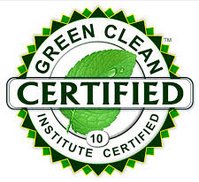 What do consumers think about buying green products like electric vehicles (EVs), hybrids, and alternative fuel vehicles? Two studies show some of the market trends with American consumers that are worth paying attention to.
What do consumers think about buying green products like electric vehicles (EVs), hybrids, and alternative fuel vehicles? Two studies show some of the market trends with American consumers that are worth paying attention to.
“Greener” products and corporate commitments to sustainability are desired by 70% of consumers, according to a new study by Shelton Group, a marketing and communications firm focusing on the green and sustainability industry sectors. A Harris study has found that 75% of American adults reported buying green products and services; that’s down from 78% last year, but still represents three quarters of US adults.
As for generational trends, the Harris poll reported that 27% of millennials say they’ve increased the number of green products and services they select; 18% of adults 35-to-44 years old say they’ve made this increase; for adults over 45 years old, 15% have increased their green product and service selections. What if it costs more than other products and services? Forty percent of adults said they would pay more for products if ethical and responsible manufacturing practices are guaranteed; 56% of millennials said they would pay more for such products, according to the Harris study.
What are your thoughts on successful green marketing? Please Leave a Reply below or email me at jlesage@jonlesage.com. (You’ll need to click on the link for this article in the headline to access the Leave a Reply section.)
As for my perspectives, here are some market trends with real potential for sales growth in clean transportation……..
- Automakers and dealerships reporting commitment to sustainability and ethical standards from factory production, materials used in the vehicles, energy efficiency, and LEED-certified dealers.
- Luxury buyers and car buffs who want to latest in high performance, disruptive vehicle technologies. The Tesla Model S has gained a legion of hardcore enthusiasts, and the BMW i3 is starting to get a lot buzz amongst car buffs.
- More affordability and accessibility. Prices for EVs, hybrids, and alternative fuel vehicles have been reducing in the past couple of years – and federal and state incentives will be around for a while. Manufacturer incentives and lease deals make them more cost competitive, too. Another market trend to educate consumers and fleets about is how widespread the charging and fueling infrastructure is becoming in the US.
- Test drives and rentals. Enterprise Rent-A-Car has found a lot of interest and enthusiasm from customers who rent an EV for a few days. Test drive events are making waves, as Tesla Motors has found out in recent years. Another winner has been deploying a few of these vehicles for studies with fleets.
- Marketing alliances. We’re starting to see more partnerships and alliances offering incentives and benefits to car owners – such as free EV charging programs; mobile apps for smart phones and tablets mapping out charging and fueling stations; open sourcing EV charging stations to make them more accessible to EV drivers; card payment systems for charging and fueling; and adding more options to gas station pumps.
- Educational events. Clean transportation experts typically call out for more educational and information resources that are needed out there. I would say that the greatest potential for reaching people would include: training programs for dealers on answering car shopper questions in less than 10 minutes; get more “butts in seats” at car show ride and drives, test drives through dealers and car rental companies, fleet vehicles, and through carsharing services; celebrities who love their green cars; and analytics on the benefits derived from clean transportation in emissions reduction, cost savings, freedom from oil dependency, and domestic economic growth.

